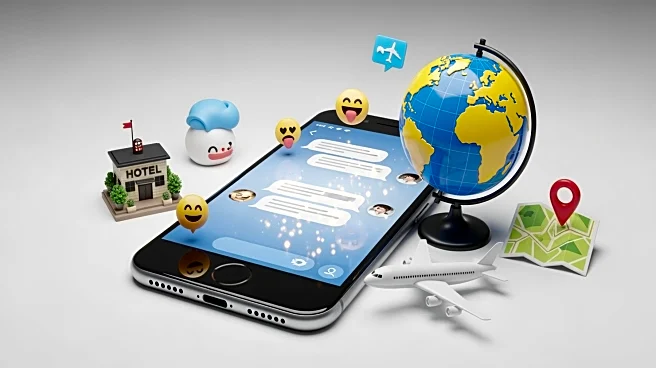What's Happening?
WhatsApp is increasingly being adopted by airlines, online travel agencies (OTAs), and hotels as a tool for travel bookings and customer service. The app is being used for tasks such as boarding pass delivery, ride-hailing, and concierge requests. Meta
has expanded its business tools, including Flows and the Cloud API, to support these functions. This shift promises faster service and lower costs but raises concerns about privacy and dependency on a single platform.
Why It's Important?
The integration of WhatsApp into the travel industry represents a significant shift in how travel services are delivered and consumed. By streamlining communication and transactions, WhatsApp enhances customer experience and operational efficiency. However, it also poses challenges related to data privacy and the reliance on a single platform, which could impact customer trust and service reliability. This development could lead to broader adoption of messaging apps in other service industries.
What's Next?
As WhatsApp continues to expand its role in the travel sector, companies may further integrate AI and automation to enhance service delivery. The focus will likely be on balancing personalization with privacy, ensuring compliance with data protection regulations. Travel brands might explore additional messaging platforms to diversify their communication channels and mitigate risks associated with platform dependency.
Beyond the Headlines
The use of WhatsApp in travel highlights the growing importance of digital communication in service industries. Ethical considerations around data usage and customer consent will be crucial as companies navigate this new landscape. The success of WhatsApp's integration could influence other sectors to adopt similar strategies, potentially reshaping how services are provided across various industries.
















